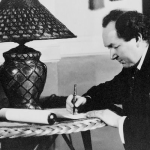Accounting has been around so long; where do you start? With most professional organizations tracing their histories back to the time of the American Civil War, as well as an industrial boom that moved most Western countries away from agriculturally dominant economies, we felt that accounting as we know it today truly started in the mid nineteenth century.
The 1860s were an extremely turblulent decade with numerous upheavals in Europe and America. By the 1880s, most Western countries experience a large economic boom, due to the mass production of railroads and other more convenient methods of travel. In the world of accounting, several founding bodies and local societies emerge and Accountancy begins to take form as an organized profession.
Events in this chapter of the visual History of Accounting Series include:
- 1860 – Abraham Lincoln is elected the 16th President of the United States, taking office the following year.
- 1861 – The Revenue Act of 1861 is passed, establishing the first U.S. federal income tax as a 3% flat rate; only to be replaced a year later by the Revenue Act of 1862’s progressive tax rate.
- 1865 – William Booth and his wife Catherine start what would later be known as the Salvation Army in London’s East End.
- 1869 – The United Kingdom passes the Bankruptcy Act of 1869 which allowed for and established the guidelines for all citizens to declare bankruptcy. Previously, only traders could file for bankruptcy.
- 1870 – Led by William Quilter of the accounting firm Quilter, Ball & Co, a group of London accountants form the Institute of Accountants in London. This was one of the first organizations to require new members to prove their knowledge and aptitude through testing; in this case an oral exam.
- 1873 – Jules Verne publishes Around the World in Eighty Days.
- 1877 – After the retirement of William Quilter, The Institute of Accountants in London elects William Turquand as their President; he would then go on to become the first president of the Institute of Chartered Accountants in England and Wales (ICAEW).





